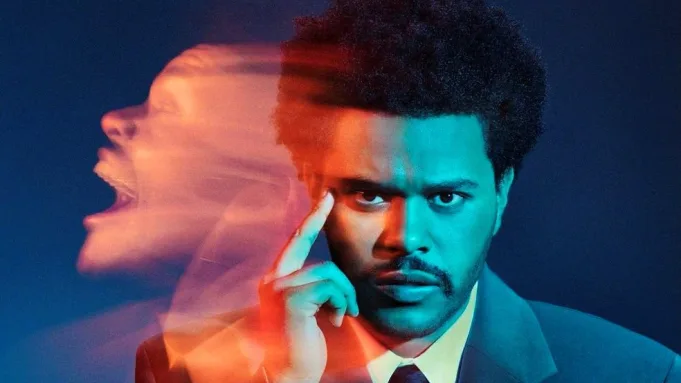At the top of 2020, The Weeknd released his most successful album to date. The delightfully dark-and-twisted “After Hours” was, for many, a transitional text perpetuating the “it’s going to get worse before it gets better” mantra that became synonymous with early “Covid times.”
He infamously eluded the Grammys and their questionable, but supposedly looking-to-improve nomination process. Then he headlined last year’s Pepsi-sponsored Super Bowl Halftime special. He has injected cinema back into music videos, and rejuvenated the act of titling songs with crucially important messaging. There is endless evidence to support the notion that The Weeknd’s takeover is in full force.
What’s more: “Dawn FM” – released last Friday night to immediate acclaim – is a clear indication he is just as for the 9 a.m.-5 p.m. workday warriors as he is for the 9 p.m.-5 a.m. restless rest of us.
The record cuts the fantasy of a wonderful tomorrow with a chase of pragmatic confrontation – of what’s past, versus what’s one’s current reality. Kismet, as The Weeknd first teased his quasi-concept album in November by telling Billboard the album originated as a comforting mix for one listener in mind – the recently departed – then by default, anyone who’s ever reached a purgatorial state in life.
He tabbed Jim Carrey to narrate as the afterlife radio host who makes introductory, intermission and closing appearances that welcome “the listener” out of the dark and into the light. Fascinatingly, the Golden Globe-winner is not the first megastar 1960s-born comedian The Weeknd has teamed up with on more dramatic material.
Starring as himself alongside the criminally unrecognized by The Academy Adam Sandler in 2019’s Uncut Gems, The Weeknd bonded on the project with composer Daniel Lopatin and co-director Josh Safdie enough to deploy their talents on “Dawn FM” as well.
Lopatin, well-known by his “Oneohtrix Point Never” moniker, executive produced “Dawn FM,” while Safdie contributed spoken word dialogue on the Total Recall, Vanilla Sky-espousing “afterlife as infotainment” track number-thirteen: “Every Angel is Terrifying.”
Following Carrey’s prologue commencement, the album’s first true song, “Gasoline,” which plays like a warped Christmas tune-of-sorts with each successive sampling, begins with Lopatin’s unmistakable electronic sounds. This established aesthetic right out of the gate speaks to the connective tissue, whether circumstantially or literally, existent between the fatally-charged grand finale of Gems and its acceptance-consumed spiritual successor.
Carrey’s role on the album is akin to a cross between Vincent Price’s interlude on the title track of Michael Jackson’s “Thriller,” and the late Long Island legend Harry Chapin’s “W*O*L*D” persona. Speaking of Thriller, its producer, the esteemed industry pantheon Quincy Jones, delivers an anecdotal interlude himself on the album with the aptly-titled number-six track: “A Tale by Quincy.” Moreover, super-producer Timbaland compared The Weeknd’s newest venture to The King of Pop’s most celebrated compendium of classics on his Instagram story this week.
Of course, these are not the first parallels drawn between The Weeknd and his idol’s work. Tonal tributes aside, the poster art and marketing materials on “After Hours” and “Dawn FM” speak to The Weeknd’s critique of a “plastic” celebrity-obsessed culture many contend Jackson helped propagate, and the beauty he finds in defying his elders by embracing aging.
Dance-pop and synth-pop define the LP that’s “Take My Breath Away” and “Sacrifice” have been issued as its first singles. The former peaked at number-six on the Billboard US Hot 100. However, its best song by far remains chartess, as of now.
“Less than Zero” alludes to either the Bret Easton Ellis (author, “American Psycho”) novel or its 1987 film adaptation of the same name starring Robert Downey, Jr. in a party-crazed role since-viewed as hauntingly fortuitous of his own decade-plus of misdeeds and misfortune.
Penultimately positioned, it is essentially a checkmate-of-a-chess move The Weeknd has played in friendly competition with fellow R&B/Popstar, Post Malone. The song can be argued as a metaphor for The Weeknd’s self-doubt-fueled creative process while abandoning hedonistically-charged lyrics, and subsequent absorption of his evolution beyond the “badboy” brand he built his early successes upon.
With a lighter touch on “Less Than Zero,” and across the album as a whole, he has declared his decision to choose morality over insanity the second-go around. The album’s narrative trajectory encompasses how problemed the high road can sometimes feel for those used to setting a furious blaze to relationships instead of ending them with a healthier approach.
Additional featured artists on the album include: Tyler, the Creator (track number-eight: “Here We Go…Again.” and Lil Wayne (track number-fourteen: “I Heard You’re Married.”)
The general consensus amongst die-hard fans: it is a better album than its individual parts. Think of your favorite concept albums – “Tommy” by The Who, “The Wall” by Pink Floyd, “American Idiot” by Green Day, “The Black Parade” by My Chemical Romance and so forth. These are terrific albums on their own accord, but certainly expanded their reach when scripted music videos, visual movie events, and even Tony Award-winning musical counterparts were introduced.
In a few year’s time, once all of its singles have earned the short film treatment at the least, expect “Dawn FM” to be judged by the fullest scope of its reverberated beats and invitations to dance.







